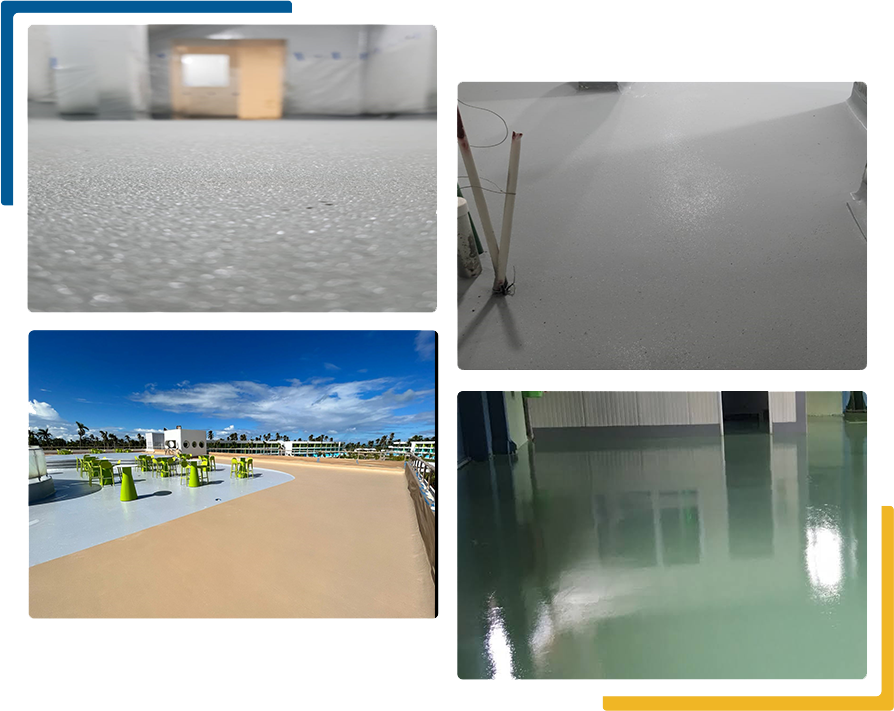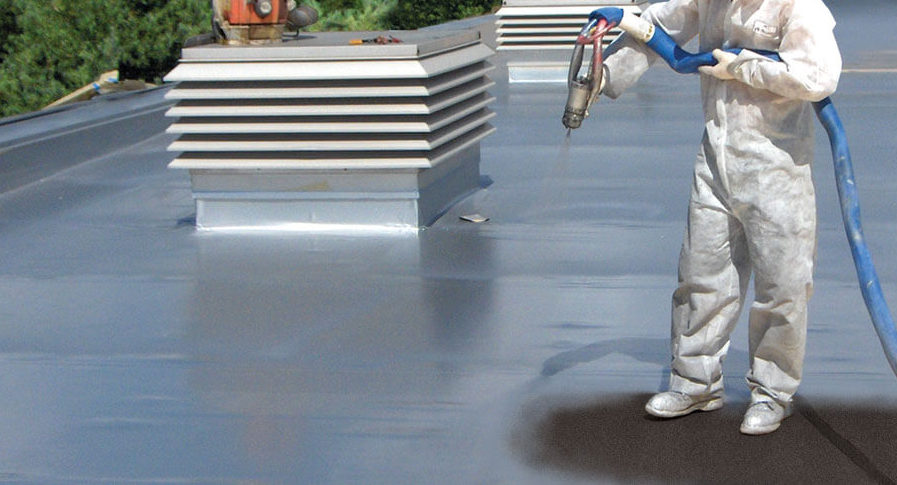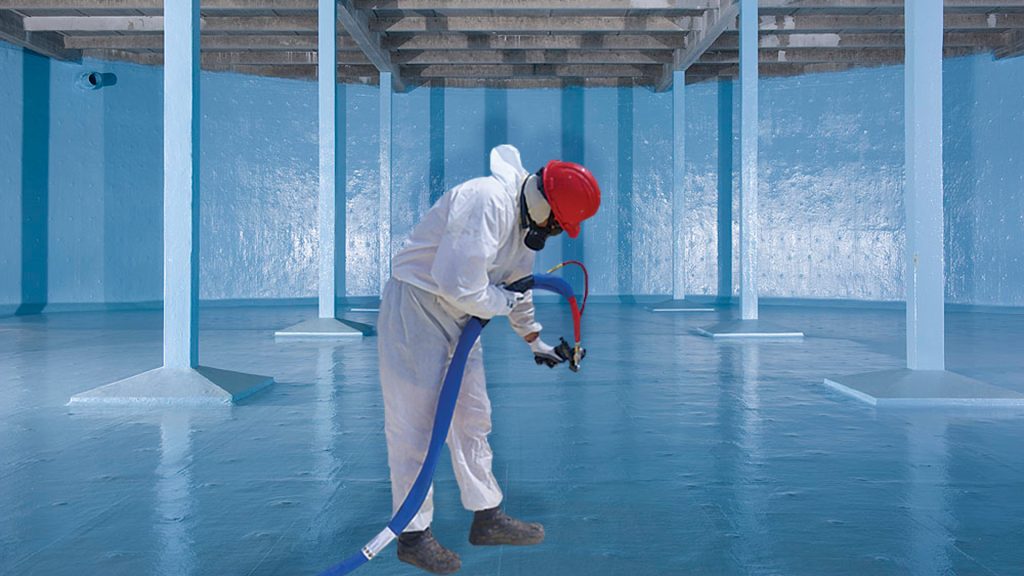POLYUREA VS EPOXY: WHICH IS BETTER?
INFAMOUS EPOXY
Epoxy is found in lots of garages. The main reason is that it’s inexpensive. It’s likewise marketed as an easy do-it-yourself application. Like many things in the consumer market, you get what you pay for. Epoxy is deceiving due to the fact that when first installed, it looks respectable. However, if you do your research on epoxy, you will discover it has some severe drawbacks.Today we will discuss these drawbacks as well as it’s benefits. You will learn why polyurea is the better choice when it comes to polyurea vs epoxy.

Epoxy has numerous failures
Setup takes several days.
You should prepare the concrete extremely carefully
There is a very brief guarantee if any at all
Epoxy Failures:
A common failure of epoxy is hot tire pick-up. On a hot Minnesota summer day, your tires get extremely hot from the street and asphalt. When you park those hot tires on your epoxy flooring and repel the next day, your tires can tear away the epoxy film and leave a delaminated tire mark.
Epoxy is also not impervious to staining, unlike polyurea. Although it can assist, epoxy can still be stained or damaged by chemicals like salt, street de-ice fluid, oil, and gas.
Delamination is a typical epoxy failure. If the concrete isn’t ready correctly, epoxy will delaminate and deteriorate quickly. This delamination is common with many concrete coatings, not distinct from epoxy.
Setup
The only advantage epoxy has more than polyurea is the devices needed for installation. For example, “This Old House” recommends needing just:
Big broom
Paint tray
Paint rollers and extension deals with
Plastic watering can
Flooring mill (optional).
Imperfect Polyurea.
Although an extremely resilient polyaspartic, polyurea too has some drawbacks. For example, it establishes extremely fast, you need to be quick and know what you are doing. You also require a dual-feed pump among other unique tools. It has a natural tendency to comply with anything it’s sprayed on. Nevertheless, it does not bond with concrete along with other coatings.
Polyurea however has a huge benefit. Fast treatment times, versatility and abrasion-resistance and almost endless color options are all inherent homes of Polyurea. This makes it a natural option for the high needs of a garage floor coating.
Needs as low as a one-day application.
Fast treatment times; walk on in 4-8 hours, drive on in 24 hours.
Chemically resistant to severe chemicals including gas, oil and salt.
Extremely resilient– 20 times stronger than epoxy.
98% more versatile than epoxy; will not break or peel.
No VOC’s and little to no odor.
Technology behind protecting your concrete.
Polyurea is a natural polymer that is the response of isocyanate with an amine-terminated polyether resin, forming a plastic-like or rubber-like substance that may be used in a lot of the same ways as older innovations– polyurethane, epoxy, vinyl ester, neoprene; to name a few. Find more information at the Wikipedia definition. In other words, it’s versatile so it will not break like an epoxy would and it has a natural ability to bond to the surface area it’s sprayed on.
Numerous coating applications.
Polyurea has a long history in commercial applications such as pipe/pipeline coatings, water treatment plants, manhole & drain linings, and naturally concrete coatings. In fact, if you are familiar with spray-on pickup bed liners, you recognize Polyurea. It’s appeal nowadays remains in concrete coatings, but the possibilities for its usage are endless!
A Hybrid Product.
A legitimate company uses a combination of a permeating polymer and polyurea. The permeating polymer is best for truly bonding to the concrete. Then a coat of color flakes. Over the top of the flakes comes the sealing polyurea.






